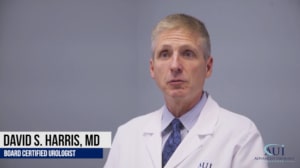Kidney stones are a common medical issue that arises when hard deposits of minerals form in the kidney and can affect the urinary tract. These stones can cause severe pain in the abdomen and groin, nausea, and pain during urination. Kidney stones have no single or set cause. Anyone is at risk of developing kidney stones at some point in life.
 Although anyone can develop stones, there are certain factors that can indicate who gets them and how they occur. As urologist Dr. David S. Harris states, “There are certain features of a person’s stone history that are predictors to us if they’re going to have more stones.” A patient suffering from kidney stones will want to consult a urologist to see what can be done to limit the chances of developing kidney stones in the future.
Although anyone can develop stones, there are certain factors that can indicate who gets them and how they occur. As urologist Dr. David S. Harris states, “There are certain features of a person’s stone history that are predictors to us if they’re going to have more stones.” A patient suffering from kidney stones will want to consult a urologist to see what can be done to limit the chances of developing kidney stones in the future.
A urologist may want to do a urine or blood analysis to see if there are any reasons for a patient to develop kidney stones. A urologist also may want to address some common risk factors for kidney stones. For instance, dehydration is a very common cause of kidney stones. For this reason, people who live in warm climates and are at greater risk of dehydration are also at greater risk of developing kidney stones. A urologist may recommend that someone living in a warm climate like Florida drink plenty of fluids every day.
People with diets high in salt, protein and sugar are also at increased risk of developing kidney stones. Too much salt especially increases the amount of calcium a person’s kidneys must filter, increasing the chances of stone development. Obesity also increases the risk of developing kidney stones, so weight management is something a urologist will strongly recommend if that is a factor.
Beside dehydration and dietary choices, genetics can play an important role in an individual’s risk of developing kidney stones. If someone in your family has kidney stones, then you are more likely to develop them as well. And once you develop kidney stones you are at a greater chance of developing stones in the future. For this reason, in addition to adjustments in water intake and diet, urologists sometimes will recommend medications.
Just because someone has had kidney stones before doesn’t mean they will have to suffer with them the rest of their lives. At the Advanced Urology Institute, doctors work with their patients to find and correct root causes for kidney stones. For more information, visit the Advanced Urology Institute website.


